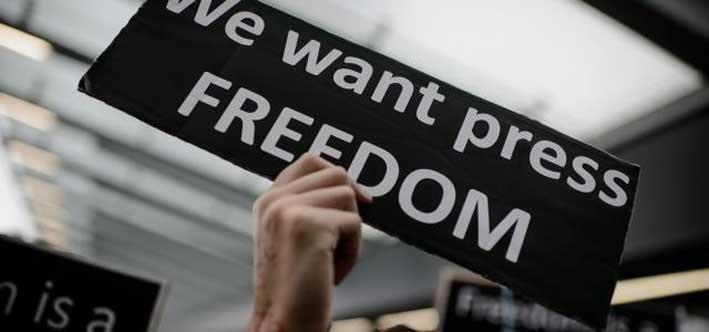A new law regulating the media is “one big step backwards,” according to a former chairman of the Malta Communications Authority.
Speaking to The Malta Independent, Philip Micallef, who until recently also served as Chief Executive Officer of Air Malta, said the bill is nothing more than censorship, “whatever government ministers and officials say.”
The Media and Defamation Act, which will go up for public consultation, has been described as a killer of freedom of speech by many in the fields of journalism, blogging and IT law.
Of particular concern is the clause requiring news websites to register with the government, adding that “the protection of sources provided for in this article shall only apply in respect of editors or publishers of newspapers, broadcasting services, or websites who are registered with the Media Registrar and in the case of authors of publications in such media it shall only apply if the author habitually exercises the profession of journalist either on a full-time or on a part-time basis.”
The government says the bill, which also abolishes criminal libel and increases libel damages, will also serve to protect journalists.
Mr Micallef said that, for a start, the registration requirement was unclear. “What if I have a blog that is related to current affairs and technology which is registered in Malta but aimed at a foreign market? Do I have to register that as well?”

He argued that the registration requirement can dissuade people from writing or launching current affairs websites, as a result of the added complexity, but applicants could also be refused permission by the government. This in itself would be a form of censorship.
“I see it as censorship that you have to register a website that contains some form of current affairs,” Mr Micallef said, adding that he had never seen such a law in any other country. “There are two countries that have actually gone a step further and declared the ‘internet rights’, Italy and Brazil. But there is still not talk of registration or censorship.”
Mr Micallef, who had also served as the CEO of the Regulatory Authority of Bermuda, said censorship “should only be allowed in cases where there is a threat to the security of a country or in cases of pornography, if it goes against the morals of that country, certainly not for expressing an opinion or a political idea.”
It is wrong to apply the rules of the newspaper world to the realm of the internet, he says pointing out that websites already have to be registered, through a local entity, with the Internet Corporation for Assigned Names and Numbers (ICANN). The worldwide body does not, however, control the content.
“Content should only be controlled by some court order in extreme cases, such as if someone is spreading terrorism, but even then you cannot just go and stop it there are proper mechanisms in place.”
Mr Micallef says one can debate whether this bill constituted censorship from a legal perspective but said that, in his opinion, this was a big step backwards. “This has nothing to do with politics. I sincerely believe in freedom of expression on the internet as long as it’s an opinion and not harmful to the security of the country.”